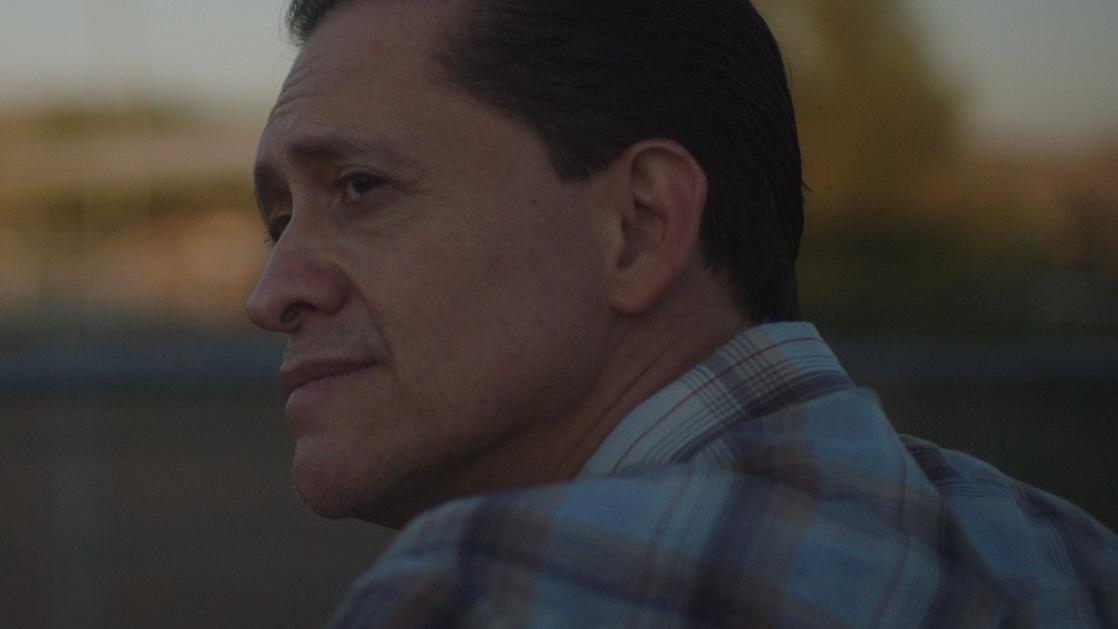Sundance drama Jockey doesn’t race beyond sports-movie formula
Clifton Collins Jr. is a veteran jockey in this mostly hackneyed indie

Jockey’s opening minutes tell you all you need to know about the kind of movie you’re about to watch. An aging jockey and former champion, Jackson Silva (Clifton Collins Jr.), visits a doctor after being plagued by hand tremors and muscle spasms. Given the sport’s high risk of debilitating injuries, his body is in rough shape, to put it mildly. (Asked how many times he’s broken his back he responds, “Three times… I think.”)
Trouble is, Jackson is also determined to win one more championship, and through his longtime friend and horse trainer, Ruth (Molly Parker), he’s found just the horse to make that happen. Complicating matters is a younger hotshot jockey named Gabriel (Moisés Arias), who turns up claiming to be his son. By the film’s 20-minute mark, you can practically see the climactic sports-movie race already.
It’s not necessarily a deal-breaker that Jockey is formulaic. The environmental specificity of The Rider, for instance, arguably wouldn’t come through as strongly if it weren’t for the film’s familiar get-back-on-the-horse dramatic structure. And for a while at least, Jockey achieves something similar, allowing the textural details of its lesser-seen milieu (centered on a racecourse in Phoenix) to emerge from its pro forma plot. One of the film’s best scenes simply observes a bunch of seasoned jockeys (mostly first-time actors, with the exception of Collins) talk about how they’ve coped with their professional anxieties, injuries, falls, and post-traumatic stress. Here, director Clint Bentley lets the camera just hang back, and the men maintain a relaxed, forthright demeanor that’s difficult to fake. And despite the hoary visual clichés elsewhere used to convey Jackson’s injuries, placing him within the group lends his own situation a kind of authenticity.
When Jockey’s plot inevitably kicks in, however, things start to go awry. Although Jackson at first denies the possibility of being Gabriel’s father, he’s drawn to the rookie’s skill and decides to mentor him. Not every detail of how their relationship unfolds is predictable, but virtually every dramatic beat is—the unfortunate result of a hackneyed script (co-written by Bentley and Greg Kwedar) and shaky performances.
Despite winning the U.S. Dramatic Special Jury Award for Best Actor at Sundance, Collins often struggles to convey more than one clearly telegraphed emotion at a time, and rarely rises above the script’s unimaginative demands. He fares best opposite Parker; the two together convey a strong sense of shared history between Jackson and Ruth. But this jockey-trainer relationship is ultimately peripheral to the one between Jackson and Gabriel, which is meant to be the film’s emotional core. It doesn’t help that Bentley’s direction often defaults to combining prettified, faux-lyrical sunset shots and an intrusive, saccharine score from The National’s Bryce and Aaron Dessner, who are having a pretty busy year in the film soundtrack business.
Ultimately, Jockey’s most compelling elements lie in the margins. Its major dramatic moments fall flat next to peripheral, off-hand details. In a film that’s ostensibly about horse-racing, it’s not a great sign when a pre-competition scene of a priest blessing a group of jockeys in a locker room is more interesting than the competition itself. Perhaps the best thing one can say about Jockey’s ending—which, yes, involves one last race—is that its sense of dramatic anti-climax finally feels intentional.